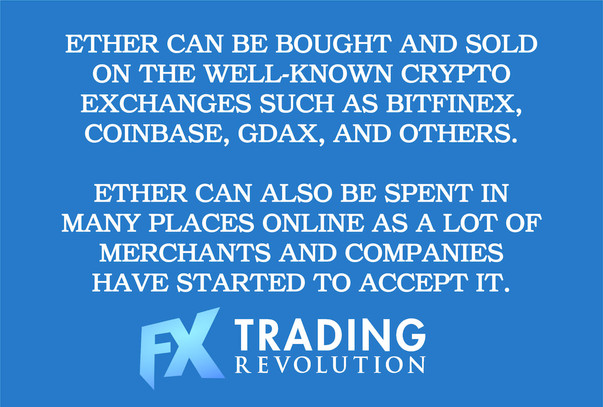Ethereum is not the typical cryptocurrency like, for example, Bitcoin. Rather, Ethereum is a blockchain platform that primarily has the purpose to allow the creation and management of smart contracts and distributed applications.
The cryptocurrency that is used to fuel the Ethereum network is called Ether.
In this sense, Ether is no different from the other cryptocurrencies, but, before we get into it, let’s briefly see what are smart contracts and distributed applications which can be created on the Ethereum platform.
What are smart contracts?
Smart contracts are just digital forms of a standard contract. The intention with smart contracts is to improve the ways in which traditional contracts are done. Smart contracts have the potential to significantly reduce the costs of doing legal work for all kinds of things as well as speed up the whole process and make it more secure.
Ethereum uses the decentralized blockchain technology to achieve this. Eventually, smart contracts could reduce the needs for lawyers and complex legal work to a minimum.
What are distributed applications?
Distributed applications, known simply as DApps, are software applications that are stored on and operated from multiple locations (computers), usually on a peer-to-peer network. In the case of Ethereum, DApps are run on the blockchain platform and are distributed to all users of the network.
In this way, all users can contribute to the development process and can see all changes made by other users. This opens new possibilities for developers as the blockchain technology provides a highly transparent and secure way to share applications and collaborate on projects.
Ethereum has its advantages and disadvantages
The cryptocurrency, Ether, trades on exchanges and can be used as any other popular cryptocurrency. You can buy Ether on the well-known crypto exchanges such as Bitfinex, Coinbase, GDAX, and others. Ether can also be spent on many places online as a lot of merchants and companies have started to accept it as a form of payment.
Obviously, we can see that Ethereum is different from other cryptocurrencies. If we take Bitcoin for comparison, Ethereum offers many more possibilities while Bitcoin can only be used as a currency where it is accepted, or for speculative purposes (buying it and hoping to sell it at a higher price for profit).
Ether’s primary role as a cryptocurrency is to facilitate operations on the Ethereum platform and to complete payments and transactions within the network. The blockchain technology that powers Ethereum offers the same advantages as the Bitcoin network in that it’s also highly secure, fully transparent and decentralized.
Also, unlike Bitcoin, the Ethereum project went public on an initial coin offering in 2015 and the founders of Ethereum are well-known.
The cryptocurrency was started by programmers Vitalik Buterin, Mihai Alisie, Anthony Di Iorio and Charles Hoskinson with the idea to provide a blockchain platform that is more flexible and versatile than Bitcoin.

But, as we said in our other posts on cryptocurrencies, these technologies are still new and developing, so Ethereum has its disadvantages also. Namely, the similar problem of Bitcoin is present, where over time the whole system gets slower as mining gets more complex.
The value of the cryptocurrency Ether is tied to the Ethereum project and its price often fluctuates wildly based on this. Also, the supply of Ether is not limited like Bitcoin and there is no finite number of Ethers that can be created in the future (remember, in contrast, only 21 million Bitcoins can ever exist).




